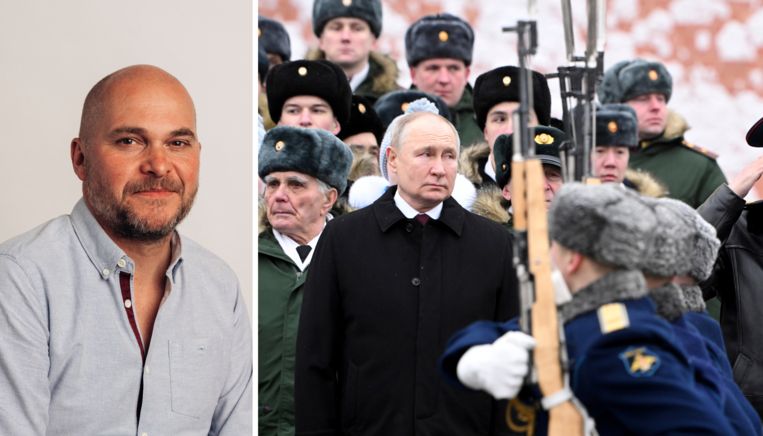Russia's war of conquest in Ukraine is entering its third year, and only now does the impact of that battle appear to be fully felt here. For a long time, the West was fed stories about extraordinary Ukrainian heroism, brilliant Western support, and brutal but impotent Russian attackers who could make no headway.
This enthusiasm is now outdated. When we look back, we find that optimism suited us. We hoped that the Ukrainians would do the dirty work, with the support of a safe second line. At the same time, Europe weaned itself off cheap Russian gas, and that seemed like a big contribution indeed.
We now know that this is not enough. The European economic and sanctions policy turned out to be a bitter lesson in humility. Russia quickly found a market in countries that no longer allowed itself to be lectured by the West. The United States and China have used the confrontation between the energy crisis and climate change to promote industrial competition. And most important of all: on the front, Russia turned out to be a more difficult enemy than initially thought. The idea that Vladimir Putin's regime can be defeated has been refined. Containing Putin would indeed be successful.
There is no sense in replacing the optimism that prevailed in the early years with equally exaggerated pessimism. The European Union remains relatively united in its solidarity with Ukraine. Tangible support is coming in fits and starts, but there is also hope that this difficult period will eventually be overcome, without Russia making much progress in the meantime.
More important is the widely held idea that Europe should take the fate of its continental defense into its own hands. This analysis is not new, but it has now become tangible and urgent. This will cost a lot of money and require difficult choices, at a time when other big bills (aging population, climate change) are also falling. But even in Belgium he gradually began to realize that there was no way around this problem. It is hoped this will have a more austere effect on the election campaign.
There is still more potential. If we agree that climate and geopolitics are our major global challenges, the EU can make life less difficult for its member states by excluding investments in those areas from strict budget guidelines. After all, protecting the population is a core mission of the government, and investing in it is not a waste of money.
In addition, we should not be shy about mentioning war more explicitly as an election topic. Vladimir Putin is counting on further advances by the far right (and far left) to break European cohesion. We also sometimes hear a VB member whispering whether Ukraine is worth all this money or a PVDA member saying that NATO bears all the blame. This is how it starts.
A vote for the extremists is a vote for the lack of freedom and insecurity that Putin wants to spread across Europe. Do all these voters really want that?

“Creator. Award-winning problem solver. Music evangelist. Incurable introvert.”







More Stories
British military spy satellite launched – Business AM
Alarming decline in the Caspian Sea
Lithuania begins construction of military base for German forces